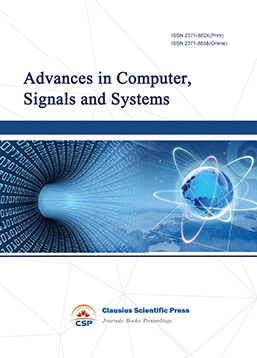Research on Security and Privacy Protection Policies of Artificial Intelligence in Primary and Secondary Education
DOI: 10.23977/jaip.2024.070317 | Downloads: 86 | Views: 1720
Author(s)
Liu Che 1
Affiliation(s)
1 Beijing National Day School, Haidian District, Beijing, 100039, China
Corresponding Author
Liu CheABSTRACT
In primary and secondary education, the application of artificial intelligence (AI) technology has brought many conveniences and innovations, but it has also raised concerns about security and privacy protection. To ensure the healthy and sustainable development of AI technology in education, it is necessary to formulate and implement a series of security and privacy protection policies. By formulating and improving relevant laws and regulations, strengthening network security protection, implementing data anonymization, and providing user exit options, we can ensure the safe, fair, and transparent use of AI technology. Only in this way can we truly play the positive role of AI technology in the field of education while protecting the privacy rights and interests of students.
KEYWORDS
Artificial Intelligence; Public Policy; Large Model; education Security and Privacy ProtectionCITE THIS PAPER
Liu Che, Research on Security and Privacy Protection Policies of Artificial Intelligence in Primary and Secondary Education. Journal of Artificial Intelligence Practice (2024) Vol. 7: 141-145. DOI: http://dx.doi.org/10.23977/jaip.2024.070317.
REFERENCES
[1] Alkaeed M, Qayyum A, Qadir J. Privacy preservation in Artificial Intelligence and Extended Reality (AI-XR) metaverses: A survey[J]. Journal of Network and Computer Applications, 2024, 2-3
[2] Bárcena C L J, Ducange P, Marcelloni F, et al. Increasing trust in AI through privacy preservation and model explainability: Federated Learning of Fuzzy Regression Trees[J]. Information Fusion, 2025, 1-4.
[3] Ferdowsi M, Hasan M M, Habib W. Responsible AI for cardiovascular disease detection: Towards a privacy-preserving and interpretable model. [J]. Computer methods and programs in biomedicine, 2024, 3-5.
[4] K N, P V. Federated Learning in Healthcare: A Privacy Preserving Approach. [J]. Studies in health technology and informatics, 2022, 3-4.
[5] Jegadeesan, Subramani, Obaidat, et al. Efficient privacy-preserving anonymous authentication scheme for human predictive online education system[J]. Cluster Computing, 2021, (prepublish):1-3
[6] Korn F M, Filipe L N, Robyn D G, et al. Digital Education for the Deployment of Artificial Intelligence in Health Care. [J]. Journal of medical Internet research, 2023, 25 2-3
[7] AL-Ghamdi A S A, Ragab M, 234. Artificial Intelligence Techniques Based Learner Authentication in Cybersecurity Higher Education Institutions[J]. Computers, Materials & Continua, 2022, 72(2):1-2.
| Downloads: | 17650 |
|---|---|
| Visits: | 656546 |
Sponsors, Associates, and Links
-
Power Systems Computation

-
Internet of Things (IoT) and Engineering Applications

-
Computing, Performance and Communication Systems

-
Advances in Computer, Signals and Systems

-
Journal of Network Computing and Applications

-
Journal of Web Systems and Applications

-
Journal of Electrotechnology, Electrical Engineering and Management

-
Journal of Wireless Sensors and Sensor Networks

-
Journal of Image Processing Theory and Applications

-
Mobile Computing and Networking

-
Vehicle Power and Propulsion

-
Frontiers in Computer Vision and Pattern Recognition

-
Knowledge Discovery and Data Mining Letters

-
Big Data Analysis and Cloud Computing

-
Electrical Insulation and Dielectrics

-
Crypto and Information Security

-
Journal of Neural Information Processing

-
Collaborative and Social Computing

-
International Journal of Network and Communication Technology

-
File and Storage Technologies

-
Frontiers in Genetic and Evolutionary Computation

-
Optical Network Design and Modeling

-
Journal of Virtual Reality and Artificial Intelligence

-
Natural Language Processing and Speech Recognition

-
Journal of High-Voltage

-
Programming Languages and Operating Systems

-
Visual Communications and Image Processing

-
Journal of Systems Analysis and Integration

-
Knowledge Representation and Automated Reasoning

-
Review of Information Display Techniques

-
Data and Knowledge Engineering

-
Journal of Database Systems

-
Journal of Cluster and Grid Computing

-
Cloud and Service-Oriented Computing

-
Journal of Networking, Architecture and Storage

-
Journal of Software Engineering and Metrics

-
Visualization Techniques

-
Journal of Parallel and Distributed Processing

-
Journal of Modeling, Analysis and Simulation

-
Journal of Privacy, Trust and Security

-
Journal of Cognitive Informatics and Cognitive Computing

-
Lecture Notes on Wireless Networks and Communications

-
International Journal of Computer and Communications Security

-
Journal of Multimedia Techniques

-
Automation and Machine Learning

-
Computational Linguistics Letters

-
Journal of Computer Architecture and Design

-
Journal of Ubiquitous and Future Networks


 Download as PDF
Download as PDF